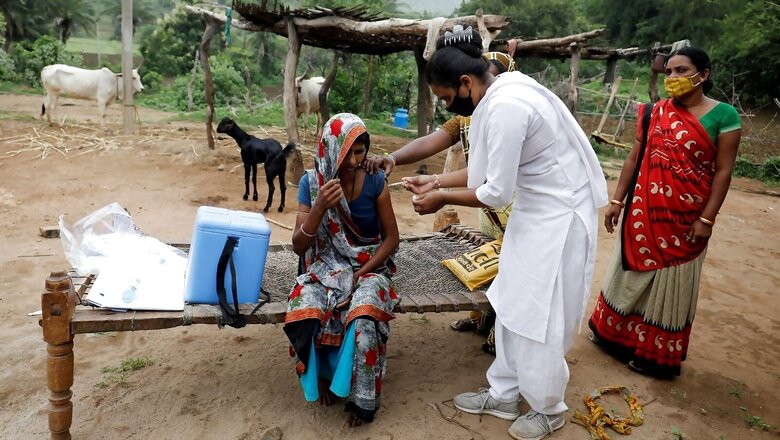
views
Diversity in any area or sector is a characteristic that is not only intrinsically fundamental to a population but also has practical necessities. Pluralistic form of healthcare systems in India has been one such example. India’s health services system comprises both modern and traditional forms of medicine (both codified and uncodified). These services have been healing people since centuries. As India sits on a gold mine of knowledge of several health systems, the major challenge is to back them up with gold standard researched evidence and integrate them into state health services on a mass level.
Lack of pluralistic understanding and research in medical health systems in the country has prevented us from showcasing the world our potential and capabilities in the field. However, latest advancements in technologies have opened up several opportunities and avenues for having a better understanding of various health systems to broaden and enhance the public health landscape of the country. It is now time that we draw attention towards bridging the gap between different health systems and place them on a globally commercial level. We will be better able to plan and put into practise evidence-based policies in the future if we concentrate on developing our grasp of potential epistemic pluralism in a public health context of dealing with knowledge-related issues like pandemics.
Pandemics and Need for Resilient Health Systems
The world has seen even the strongest and the best health structures crumbling down on their knees in the last two years. At the same time, we saw that the pluralistic form of medicine gained a new and unique contextual importance. People did look at alternative medicines. A larger explanation for this shift in public opinion can be credited to the massive promotion done by the Ministry of AYUSH. People tried traditional forms of medicine such as Ayurveda, Unani, and Siddha and later claimed that they were effective in managing the symptoms.
This shows that addressing the need of sufficient epistemic pluralism, especially in the context of public health threats, is important. However, in the case of India, there is a problem of research backing for alternate forms of medicine. Consumption of giloy, which has been used for millennia as a powder or tablet, has exponentially increased during the past two years. According to a research paper published in the Journal of Clinical and Experimental Hepatology last year, Indians’ careless consumption of giloy during the pandemic was causing liver damage. For us to have robust and integrated health systems, it is crucial that the Ministry of AYUSH modifies its policies, prioritises research, and makes traditional medicine evidence-based.
Why do we need discussions around Medical Pluralism
Medical pluralism does not only have an instrumental but also an intrinsic value for what it is in the end. There are four reasons as to why we need to have more growing and engaging discussions around the idea of pluralistic approaches towards medicine. They are: Revisiting the role of traditional medicine in national public health goals, preventing threat of commercial exploitation of indigenous knowledge, changing disease burden and search for therapies for care and addressing the shortages of human resources in rural areas.
Waiting for Recognition
While the consumption of traditional medicines have increased in the past two years, there is still a lot of scepticism around it. There is an urgent need to dispel both the uncertainty and hesitancy around using traditional forms of medicine. In the current state, an allopathic doctor is considered secondary to an AYUSH one. There are also significant differences in how much they are paid. Although biomedical knowledge was integrated into AYUSH training as per recommendations of the Chopra committee, no learning of AYUSH systems was incorporated into allopathy. To provide health security to people with limited financial means we need innovative and transdisciplinary perspectives on medical efficacy. This will take time and will only be possible if enough evidence is there to back up the doses and procedure.
India can be the leader in Medical Pluralism
India has an abundance of opportunities to explore and then integrate varied healing traditions. With proper evidence and research backing, we can not only just integrate other forms into modern medicine but also co-exist. Although there has been some progress since the formation of the Ministry of AYUSH. It has been noted that it is only Ayurveda that has reached the world. There is a lack of in-depth studies in other domains. Another important aspect is that India can benefit a lot through medical tourism if these fields are developed quickly in the form of verified alternative therapies. India accounts for almost 20% of global market share in medical tourism. Through appropriate measures around accessibility and ease, this can be leveraged upon and taken to a new level.
It won’t be enough to simply hire AYUSH practitioners on a contract basis and provide the bare minimum infrastructure. Allopathy and AYUSH have to be compatible with one another. From ignoring, we have moved to integration of traditional medicinal knowledge to modern one. Now it is time to head towards coexistence. Both MBBS and AYUSH practitioners should be welcomed and respected, and patients should be referred back and forth between them for specialised diagnosis or treatment. In health centres, the two departments should communicate with one another for the benefit of the patients. There should be logistical preparations for a constant supply of medications.
Previously, other countries have used our traditional medicine and commercialised them on a large scale after enough research and evidence. India is sitting on a gold mine of knowledge of alternative sources of medicine. It is now time that we make appropriate use of the knowledge and leverage upon our advantages.
The writer is Assistant Programme Manager at The Takshashila Institution. The views expressed in this article are those of the author and do not represent the stand of this publication.
Read the Latest News and Breaking News here


















Comments
0 comment